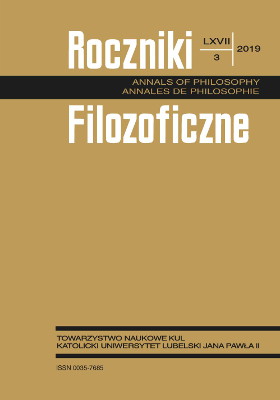Krytyki genealogiczne i autonomia przekonań moralnych
Genealogical Critiques and the Autonomy of Moral Beliefs
Author(s): Adrian KuźniarSubject(s): Philosophy, Ethics / Practical Philosophy
Published by: Towarzystwo Naukowe KUL & Katolicki Uniwersytet Lubelski Jana Pawła II
Keywords: debunking arguments; Darwinian critique; memetic argument; metaethical expressivism; Derek Parfit; moral knowledge
Summary/Abstract: The Darwinian argument in metaethics can have its memetic counterparts based on the assumption that our moral beliefs were formed in the process of cultural evolution by means of memetic natural selection. Is there any difference with respect to the debunking force of these two kinds of genealogical critiques? In this paper, I argue that there might be such difference. Therefore, it is not true that any possible naturalistically respectable causal mechanism is equally undermining for our moral beliefs. Yet, there is a more profound question to be asked: should we leave the rationality of our deepest moral beliefs at the mercy of the results of empirical investigations into their causal origin? This paper argues that we should not. However, if this approach is to be justified, the autonomy of moral beliefs must be defended in a principal manner. Only then may a different account of knowledge as well as different standards of objective propositional rationality be legitimately adopted for moral beliefs — i.e. different from those proper to non-normative beliefs. It turns out that only expressivists are in a position to claim that the property in virtue of which moral beliefs perform their distinctive practical function confers autonomy on moral discourse.
Journal: Roczniki Filozoficzne
- Issue Year: 67/2019
- Issue No: 3
- Page Range: 93-113
- Page Count: 21
- Language: Polish

